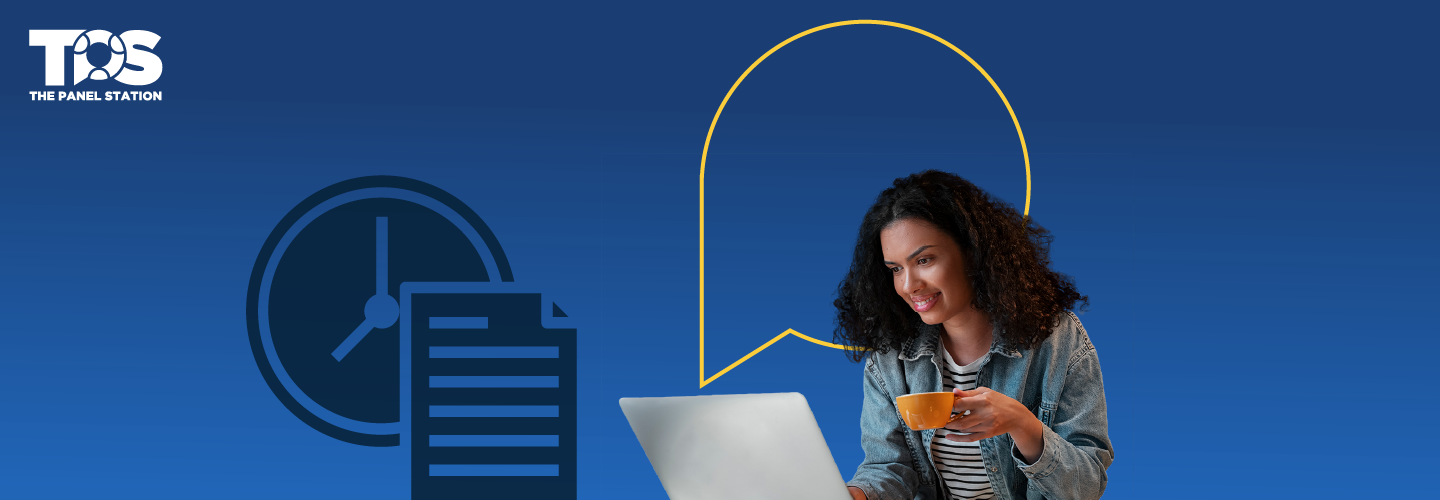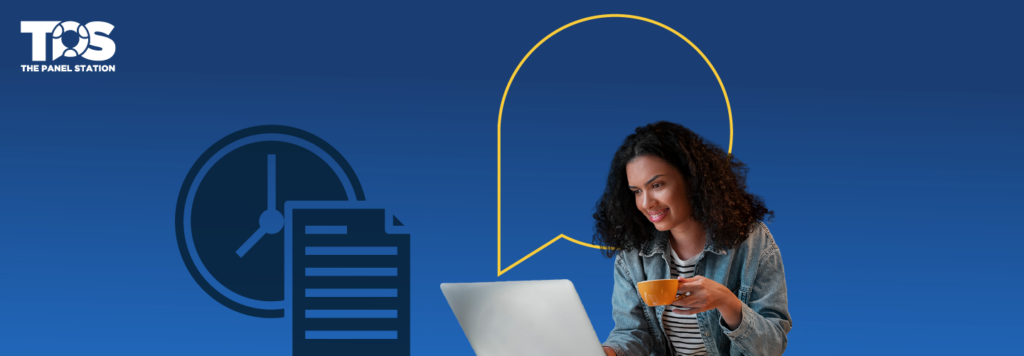

What Does “A Typical Day” Even Mean?
If you zoomed out and watched a day in people’s lives across India’s metros, South Africa’s cities, Nigeria’s semi-urban belts, the UK’s suburbs, Italy’s towns, the UAE’s towers, Kenya’s bustling marketplaces and Egypt’s neighborhoods, you’d see a surprisingly familiar routine: early alarms, long work blocks, commutes that stretch too long, household chores that pile up quietly, screens that swallow hours, and sleep that never feels like enough.
According to TPS Pulse data from 149,809 respondents across 60+ countries, this isn’t an exception, it is the world’s default setting. Despite the constant juggling, hustling, and tussling, people still call this “normal.”
This isn’t a niche lifestyle story. It is the world’s unofficial operating system.
Life Feels Fast, But People Insist They’re “Managing”
We asked people how fast their daily routine feels. No one said, “Calm.” Hardly anyone said, “Slow.” Most simply said: “Fast. Very fast.”
How Fast Does Daily Life Feel? (Global)
Nearly 66% of the world lives life on fast-forward. Whether it’s India’s high-energy metros, fast-growing cities in Kenya and Nigeria, or the structured work rhythms in the UK and Italy — the pace is the same: quick, compressed, and relentless.
Yet when we ask if they have enough time to finish their daily tasks, the answer isn’t pure despair.
Do People Feel They Have Enough Time? (Global)
How often do you feel you have enough time to finish your daily tasks?
About 63% say they always or often have enough time, but this isn’t a sign of comfort. It is a sign of constant juggling. They are “managing,” not because the day is gentle, but because they are moving fast enough to stay ahead of it.
In countries like India, Nigeria, Egypt, and Kenya, this is amplified by commutes, chores, and long work hours. In the UK, USA, and Italy, structure helps, but fatigue still shows.
Where the Hours Really Go: A Global Time Map
People often claim they are busy — the numbers prove it.
Average Hours Spent Daily on Key Activities (Global)
On average, how many hours do you spend on the following?
From New Delhi to Johannesburg, from London to Lagos, from Dubai to Cairo — the pattern is the same:
Work + commuting = ~7 hours
Household + caregiving = ~5 hours
Screens = 3+ hours
Sleep = just over 6 hours
People are not living slow, curated “aesthetic” lives.
They’re living tight, layered, over-optimized lives.
This explains why one of the most common challenges reported across India, South Africa, Nigeria, Italy, and Egypt is:
“I don’t get enough time for myself.”
Structured days, multitasking minds.
Contrary to the belief that modern life is chaotic, most people say their routine is actually regular, just packed to the brim.
How regularly do you follow a fixed daily routine?
So, the issue isn’t randomness. The issue is density, too much in too little time.
And to survive this density, people multitask heavily:
How often do you multitask during your day?
People in India multitask across work, home, and screens. People in South Africa multitask across transport, work, and chores. People in the UK multitask across work calls and personal errands. People in Egypt multitask across caregiving and household responsibilities. If daily life were a game, multitasking would be the global cheat code.
What’s Stressing People Out? Everything… All at Once
The top stressors are surprisingly consistent across countries.
What Contributes Most to Daily Stress (Global)
Across geographies: India, Nigeria, Kenya: financial pressure + traffic + long hours, UK, Italy, USA: work fatigue + lack of sleep, UAE, Egypt: family expectations + commutes, South Africa: transport issues + household load. Daily stress isn’t one big problem — it’s eight small ones piling up.
Daily Challenges: The Hidden Frictions That Drain a Day
We also asked people about the ongoing, persistent challenges they face.
Most Common Daily Challenges (Global)
Across continents, the story repeats: In India, Kenya, Nigeria, Egypt → traffic + chores + lack of personal time. In UK, Italy, USA → long hours + digital fatigue. In South Africa → infrastructure inconsistencies. In UAE → long commutes + demanding work rhythms
Wherever you go, the first thing sacrificed is self-time.
What People Wish They Could Change
When asked the open-ended question:
“If you could change ONE thing about your daily routine…”
People across all countries said versions of the same thing:
- More time for myself
- Less commuting
- Better sleep
- More flexible work/study hours
- Less household burden
- More financial breathing room
No one said, “I want a completely different life.”
What they want is a slightly kinder version of the life they already have.
The Real Insight: Life Isn’t Breaking - It is Just Overloaded
The TPS “Life in Motion” doesn’t describe chaos. It describes compressed routines, hyper-structured days, fast-moving schedules, and people who are managing — at a cost.
- Life is fast
- Routines are packed
- Multitasking is survival
- Screens fill the gaps
- Traffic eats time
- Money adds pressure
- Chores add load
- Sleep gets sacrificed
- Personal time evaporates
People aren’t overwhelmed; they’re over-optimized. People aren’t exhausted by randomness; they’re exhausted by consistency without breaks.
And still… they call it “normal.”
This is the core of TPS: Turning real opinions into real insights about how the world actually lives. Not idealized. Not exaggerated. Simply real.
Share it, and we’ll keep bringing more windows into how people live, think, and shape everyday life across 60+ countries, one insight at a time.
Disclaimer:
These insights are not just for brands; they are for anyone trying to understand how decisions are made in 2025-26. The more people share, the clearer the picture becomes.

Your opinions shape things you love, Make your voice count by sharing your opinions.
FAQ's
1. How did people structure their daily routines in 2025?
According to research, in 2025, people planned their days around flexibility instead of strict schedules. Work, personal time, and online activities often blend together, with most prioritizing convenience, efficiency, and small moments of balance throughout the day.
2. What activities take up most of people’s time today?
Most people spend their time on work tasks, screen activities, commuting, and household chores. Digital media and multitasking now play a much bigger role, shaping how daily time is used across all age groups.
3. How has technology changed daily habits?
Technology has transformed daily habits by enabling remote work, instant communication, online shopping, and on-demand entertainment. People now rely on digital tools to manage schedules, connect with others, and get things done throughout the day.
4. Are people busier now than in the past?
According to a study by The Panel Station, yes, many people feel busier due to constant multitasking and digital overload. Even though technology saves time, it also packs more activities into each day, making life feel faster and more demanding.
5. How do people balance work and personal life in 2025?
People balance work and personal life by setting flexible boundaries, prioritizing essential tasks, and integrating breaks into their day. Balance is increasingly defined by control over time rather than fixed working hours.
6. How much time do people spend on screens each day?
Screen time takes up a large part of the day, thanks to work, communication, and entertainment. Many people switch between phones, laptops, and TVs, making digital engagement a constant part of daily life.
7. Do daily routines differ across age groups?
Yes, daily routines differ by age group. Younger people tend to have more digitally driven and flexible schedules, while older groups often follow more structured routines shaped by work, family, and established habits.
8. What role does commuting play in daily life today?
Commuting remains part of daily life for many, but flexible work models have reduced its importance for some people. Time spent commuting is often redirected toward personal activities or digital engagement.
9. How do people find time to rest and recharge?
People find time to rest by incorporating short breaks, entertainment, or quiet moments into their routines. Rest is increasingly fragmented, with micro-breaks replacing longer periods of downtime.
10. How are daily routines expected to change in the future?
Daily routines are expected to become more personalized and technology-driven. Flexibility, automation, and hybrid lifestyles will continue shaping how people organize time and move through their day.
About Author : Soneeta
A bookworm at heart, traveler by soul, and a sports enthusiast by choice. When she is not exploring new places, you’ll find her curled up with her pets, binge-watching movies. Writing is her forever sidekick. Soneeta believes that stories are the best souvenirs you can collect. Basically, she is fueled by books, adventures, and a whole lot of pet cuddles.
